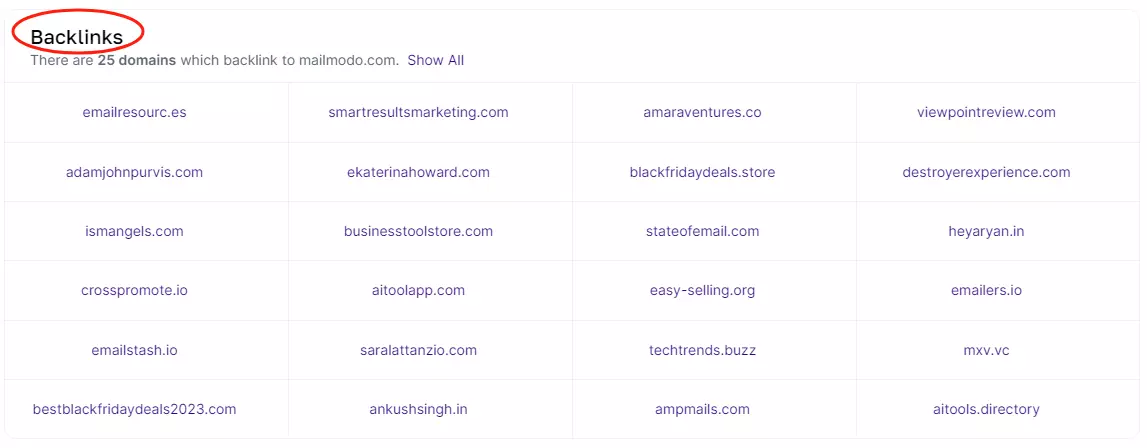
Search engine optimization (SEO) comprises various facets, among which off-page SEO stands out as particularly crucial. But what is off-page SEO exactly?
Off-page SEO involves endeavors conducted external to your website aimed at enhancing its visibility within search engine rankings. While commonly associated with link building, off-page SEO extends beyond this singular aspect.
In this guide, we will delve into the details of off-page SEO, exploring its significance, key strategies, and the impact it holds in today's digital realm.
What is Off-Page SEO?
Off-page SEO refers to the actions taken outside your website to impact its rankings within search engine results pages (SERPs).
Unlike on-page SEO, which focuses on optimizing elements on your site, off-page SEO concentrates on enhancing your site's credibility, relevance, and authority through external factors.
These factors primarily revolve around acquiring backlinks from reputable and relevant sources, brand mentions, social signals, and overall online reputation management.
You can use Niche Finder's Website Audit to check competitors' backlinks, and find out their marketing tips!

Why Is Off-Page SEO Important?
Below are some benefits of off-page SEO.
1. Enhanced Authority and Trust: Search engines consider backlinks as a vote of confidence from other sites. Quality backlinks from authoritative domains signal credibility, improving your website's trustworthiness and authority.
2. Improved Search Engine Rankings: High-quality backlinks and positive online mentions contribute significantly to higher search engine rankings, potentially leading to increased organic traffic.
3. Increased Brand Visibility: Off-page SEO strategies such as social media marketing, influencer collaborations, and content partnerships expose your brand to a broader audience, amplifying visibility and brand recognition.
How to Do Off-Page SEO for Your SEO Campaign?
Here are some key points on how to do off-page SEO.
1. Link Building
Acquiring high-quality backlinks remains a fundamental aspect of off-page SEO. Focus on obtaining links from authoritative and relevant websites within your niche.
Strategies include guest blogging, broken link building, and creating shareable content to attract natural backlinks.
2. Social Media Engagement
Active participation on social media platforms not only helps engage with your audience but also contributes to off-page SEO.
Sharing content, interacting with users, and building a strong social presence can indirectly impact search engine rankings.
3. Online Reputation Management
Monitoring and managing your online reputation are crucial. Positive reviews, mentions, and citations across various platforms contribute to building credibility and trust with both users and search engines.
4. Influencer Marketing
Collaborating with influencers and industry experts can help amplify your brand's reach, garnering more visibility and potentially attracting quality backlinks.
5. Content Marketing and Promotion
Creating valuable, shareable content and promoting it across different channels helps attract attention, increasing the likelihood of earning backlinks and social shares.
6. Local SEO and Listings
For businesses targeting local audiences, optimizing local listings, obtaining citations from local SEO, and encouraging reviews on platforms like Google My Business play a significant role in off-page SEO.
Tips for Off-Page SEO Success
1. Focus on Quality over Quantity: Prioritize acquiring high-quality backlinks from authoritative sites rather than merely accumulating numerous links.
2. Diversify Your Link Profile: Aim for a diverse set of backlinks from various domains, including different types (editorial, guest posts, directories, etc.) and a mix of anchor texts for a natural link profile.
3. Consistent and Engaging Social Presence: Maintain a consistent and engaging presence on relevant social media platforms to foster community engagement and brand visibility.
4. Monitor and Improve Online Reputation: Actively manage your brand's online reputation by promptly addressing negative feedback and encouraging positive reviews and mentions.
5. Stay Updated and Adapt: SEO is an evolving field. Stay informed about algorithm updates, trends, and best practices to adapt your off-page SEO strategies accordingly.
Off-Page SEO vs. On-Page SEO
Off-page SEO involves references to your website from other online sources, while on-page SEO focuses on optimizing elements directly within your website.
- Off-page SEO encompasses endeavors like social media marketing or influencer collaborations, aiming to acquire links and endorsements to bolster your site's credibility and ranking. This aspect operates beyond your immediate control.
- On-page SEO involves fine-tuning components within your website, such as keyword optimization and internal linking, to enhance your visibility and ranking for targeted keywords. This facet remains under your direct influence and management.
The pivotal contrast between on-page and off-page SEO lies in how Google utilizes them: on-page SEO assesses a page's relevance, whereas off-page SEO gauges its credibility.
To maximize effectiveness, it's crucial to implement both strategies. Your on-page SEO significantly contributes to the success of your off-page SEO endeavors.
Conclusion: What is Off-Page SEO
Off-page SEO plays a pivotal role in establishing a robust online presence, improving search engine rankings, and driving organic traffic to websites.
By implementing a well-rounded off-page SEO strategy encompassing link building, social engagement, reputation management, and content promotion, businesses and website owners can bolster their online visibility and authority, ultimately leading to sustained success in the competitive digital landscape.

